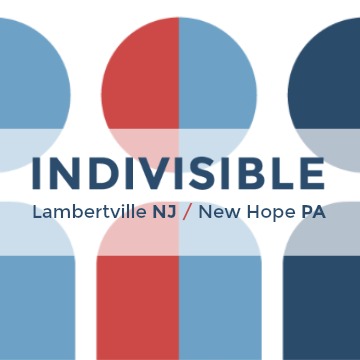Contributed by Amara Willey.
The FDA announced at the end of June that any vaccine candidate would need to demonstrate a high effectiveness level before going into more widespread human trials. The agency could issue an emergency use authorization (EUA), but indicated that might be counterproductive.
“Any misstep risks eroding confidence in vaccines that could have lasting implications,” explained Lois Privor-Dumm, policy director at the International Vaccine Access Center at Johns Hopkins Bloomberg School of Public Health.
Sen. Roy Blunt (R-Missouri), the chairman of a Senate Appropriations subcommittee, has raised concerns about surveys showing that roughly half of Americans would be reluctant to get a COVID-19 vaccine and 20% don’t plan to get one. Blunt promised that research into candidate vaccines would not move too fast or cut corners, citing the effectiveness of the smallpox and polio vaccines.
The FDA guidelines suggest that the agency will not be so quick to agree to EUA, according to Barron’s. If it did not, the vaccine could take much longer, up to four years, to develop safely.
Currently, pharmaceutical companies Johnson & Johnson, Merck & Co., Pfizer Inc. and Moderna Inc. are taking part in the administration’s “Warp Speed” program, in the race to develop and produce a vaccine that could be widely distributed.
The FDA has mandated that any vaccine show an initial effectiveness rate of more than 50% over a placebo before going into larger scale human trials. The Pfizer vaccine has demonstrated initial positive results in a trial of 45 human subjects but whether that company will meet the FDA standards is unknown. Several companies, including Moderna, are embarking on phase two testing in larger human trials.
Pfizer announced that it is planning a 30,000-person trial by the end of July with its Germany-based partner, BioNTech. The company claims that it will be able to release a vaccine by October and produce 100 million vaccines by the end of the year. Pfizer plans include the release of 1.2 billion doses of the vaccine in 2021 if successful.
Head of Pfizer, Albert Bourla, said, “If things go well, and the stars are aligned, we will have enough evidence of safety and efficacy so that we can… have a vaccine around the end of October,” according to the Associated French Press and reported by The Jerusalem Post.
This timeline is not coincidental. An approved vaccine by the fall could mean re-election for Donald Trump. It could also mean a rise in stocks in a number of sectors and be good for the economy overall.
The federal government is funding many of the vaccine-development projects, and there is some concern that the administration will apply pressure to release the vaccine before the election. The FDA’s guidance seems to alleviate some fears that the vaccine will be approved before it’s safe to do so.
“Even if the science delivers, our political leaders may fail the test by overly politicizing the process to a point that it will take longer than anticipated for a sufficient number of people to agree to be vaccinated to reach herd immunity in the U.S.,” according to Beacon Policy Advisors founder Brandon Barford.
Three top scientists involved in Operation Warp Speed deny political pressure from the White House or other agencies in terms of the selection of companies to develop a vaccine, the timing of vaccine development, the announcement of a vaccine or “any other aspect that is part of your responsibility on the medical side,” according to Dr. Francis Collins, the director of the National Institutes of Health. The other two scientists were Dr. Robert Redfield, director of the US Centers for Disease Control and Prevention, and Dr. Gary Disbrow, acting director of the federal Biomedical Advanced Research and Development Authority (BARDA). Disbrow said, “”I’m a scientist, not a politician.”
If the vaccine does receive EUA status, it will be released first to health-care workers. This would ease the need for politicians to impose further lockdowns and would help the economy, according to Michael Brush, a financial writer for the New York Times and The Economist. However, it would not necessarily prevent a fall-winter resurgence of the virus.
With the FDA’s standards for an emergency use authorization not much lower than what’s needed for full approval, the first authorization seems more likely to happen in early 2021, said Geoffrey Porges, an analyst with SVB Leerink, Bloomberg reported.
The announcement by U.S. regulators should put citizens at ease as it “suggests that regardless of political pressure, the FDA continues to apply sound regulatory judgment and expertise to the development of all medical products, particularly vaccines, regardless of the severity of the economic, political, or public health urgency of the current situation,” Porges said. “For that integrity, the general public, the biopharma industry, and all of its investors should be grateful.”
The federal government has allocated more than $9 billion for Operation Warp Speed to research and develop COVID-19 vaccines. It has pledged to manufacture candidate vaccines even before it’s clear whether they will work, to ensure that a supply will be immediately available if one or more are shown to be safe and effective.
Dr. Collins of the NIH warned that the current approach of Operation Warp Speed – with a lot of drugs potentially being thrown out – will be expensive, but that the current national emergency demands such aggressive action.
Operation Warp Speed appears to have access to substantial resources. Congress has directed almost $10 billion through supplemental funding, including the CARES Act. In addition, more than $6.5 billion was designated for countermeasure development through BARDA and $3 billion for NIH research.
The list of institutions involved in the operation includes almost every medical entity within the federal government, including the FDA, CDC, NIH and BARDA as well as the Defense Department, private firms and other federal agencies, including the Department of Agriculture, the Department of Energy and the Department of Veterans Affairs.
Warp Speed will be run by a mix of scientists, regulators, and the military, with the presumption that only the U.S. military will have the capability to rapidly distribute and deploy a vaccine or vaccines once they are available.
Sources:
- https://www.politico.com/news/2020/06/30/fda-guidelines-coronavirus-vaccines-345527
- https://www.bloomberg.com/news/articles/2020-07-01/fda-covid-vaccine-guidance-throws-cold-water-on-trump-2020-goal
- https://www.msn.com/en-us/news/world/biontech-pfizer-report-progress-in-coronavirus-vaccine-trial/ar-BB16dr4F
- https://heavy.com/news/2020/07/pfizer-coronavirus-vaccine-timeline/
- https://www.jpost.com/international/pfizer-projects-october-release-date-for-coronavirus-vaccine-629980
- https://www.marketwatch.com/story/heres-why-the-fda-may-approve-a-covid-19-vaccine-before-the-november-elections-according-to-jefferies-biotech-research-team-2020-06-19
- https://www.msn.com/en-us/news/politics/im-a-scientist-not-a-politician-health-officials-answer-senators-on-covid-19-vaccine/ar-BB16gGch
- https://www.usatoday.com/story/news/2020/05/24/coronavirus-vaccine-covid-19-operation-warp-speed-moncef-slaoui/5242123002/



